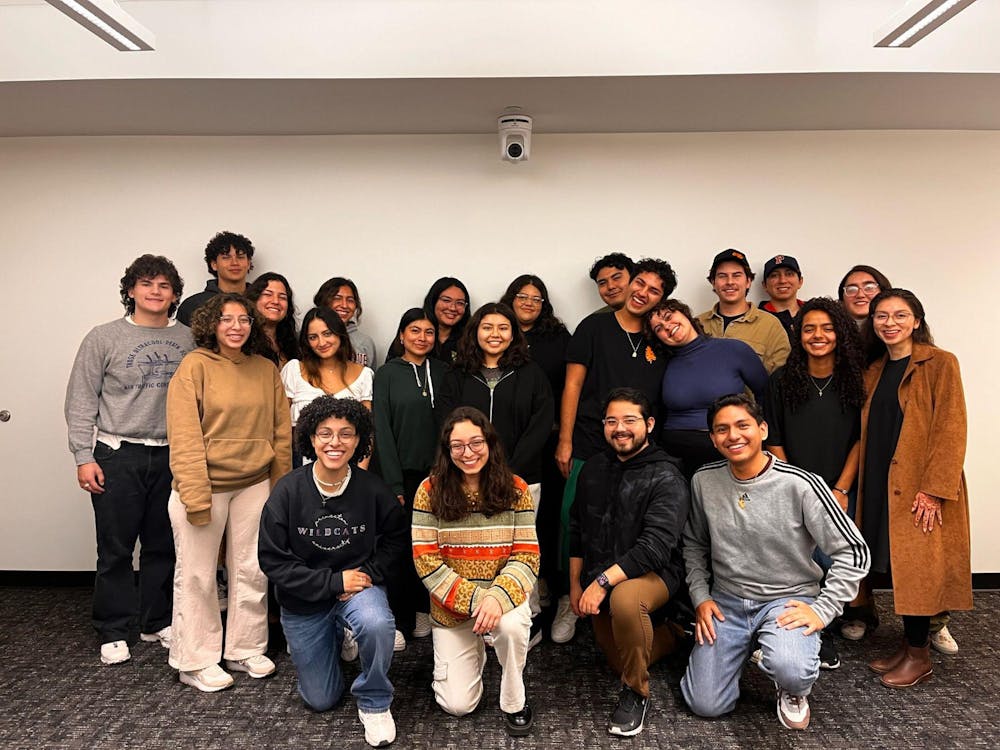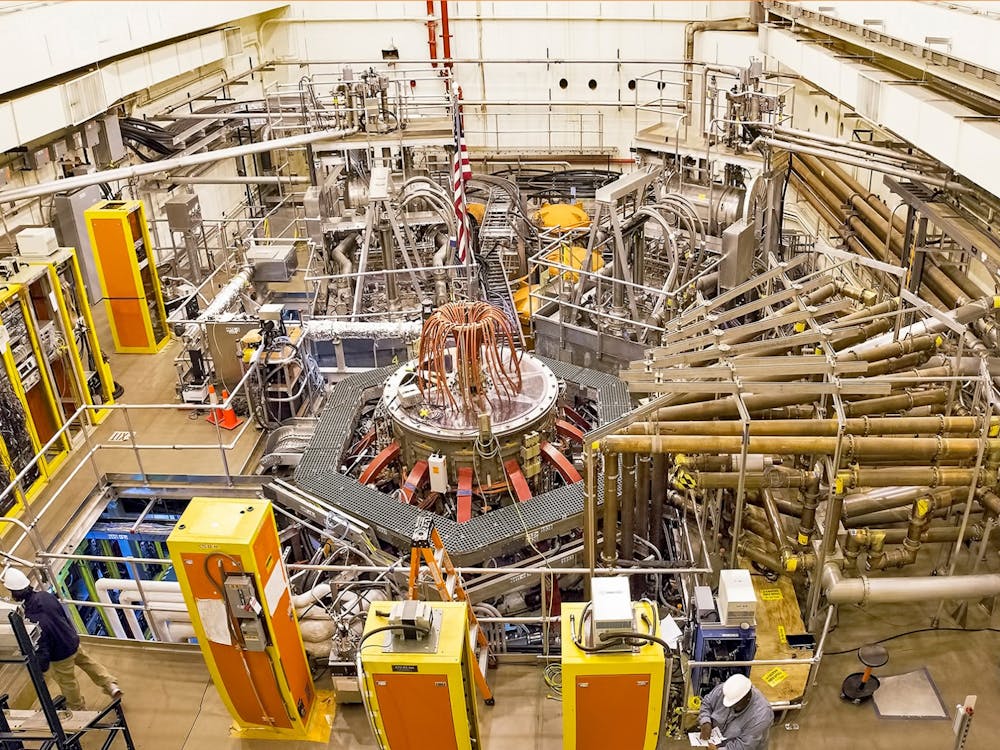The Princeton Latin American Student Association (PLASA) recently went through a restructuring process that saw their board of 10 people transformed into a central team composed of 42 people. The change marks a period of transition for a community that makes up about 10 percent of Princeton’s student body.
The Daily Princetonian spoke with the central team on the purpose of the restructuring, accomplishments so far this semester, problems facing the Latine community on campus, and the group’s goals heading into 2024.
PLASA initially announced a proposal to alter the makeup of its executive team on Instagram in April following the election of new officers. Adriana Alvarado ’25 and Nely Abigail Serrano Rivas ’25 are now co-presidents, and Gustavo Blanco-Quiroga ’25 serves as vice president. The proposal also triggered the creation of two new committees dealing with Professional Development and Alumni Outreach.
With the creation of new committees, two co-chairs positions and four committee member positions were subsequently created for each committee. In total, PLASA has eight committees, with the remaining six including: Activism & Service, Communications, Community Events, Cross-Cultural Advocacy, Hermanitas, and Latine Identities Advocacy.
PLASA’s central team told the ‘Prince’ that the main reason for the restructuring was to serve as a “response to our community’s feelings about belonging and participation.” Advocacy Chair Aaron Molina ’26 stated that he previously viewed PLASA as “an organization but not a community.” Now as an elected officer, along with the rest of the central team, Molina hopes to turn PLASA “into a bigger community.” The central team also hopes that by expanding, they are able to enter “different spaces.”
Immersion in different spaces
PLASA has taken steps towards furthering collaboration with different student organizations on campus, including by taking part in a cross-cultural dinner hosted by the Carl A. Fields Center in February. The dinner also included other student organizations such as the Princeton African Students Association (PASA), the Black Arts Company (BAC), and the Princeton Arab Society.
In October, PLASA held a bandera march which was featured on Princeton’s Instagram account. The group also hosted a reception dinner for Latines at Princeton and a final celebration of Latine Heritage Month called La Placita Cultural. PLASA has collaborated with the Latino Medical Student Association, Más Flow Dance Company, Natives at Princeton, Princeton Caribbean Connection, Princeton Brazil Society, and Princeton J-Lats.

Many of PLASA’s events have historically been related to Latine culture and history, but recently, in large part due to the group’s new Professional Development committee, PLASA put on a panel and held a networking session with investment management firm D.E. Shaw. The event focused on Finance and Technology and highlighted Latine experiences in STEM-related fields.
Molina, in a message to the ‘Prince,’ said that the event meant a lot to him. As a prospective Economics major, he said that he doesn’t see many other Latines like himself in many of his STEM-related courses, specifically mentioning departments like Economics and Operations Research and Financial Engineering.
Molina added that not seeing yourself represented can feel “isolating.” Through the D.E. Shaw session and similar future events, Molina hopes that Latines continue to remain motivated in their academics and know that their presence is valuable.
This isolation “could contribute to [a] lack of motivation,” Molina said. “Thus, PLASA is trying to eliminate that idea and put ourselves out there.”

Finding community
Latines make up less than 10 percent of the student population on campus, according to the University’s second annual Diversity, Equity, and Inclusion (DEI) Report.
The central team spoke further about imposter syndrome facing Latines, stating that one of the goals for the organization this year is “that PLASA members feel a sense of belonging at the large scale of the Princeton community.”
“Trying to incorporate all the Latine identities [at] Princeton that sometimes are not encouraged to be recognized” is one issue the central team cites as a crucial one facing the Latine community.
“PLASA aims to be able to be inclusive to all those identities and make Princeton that place that has not always been the most welcoming for minorities like us,” they added.
PLASA’s calls for inclusivity and the addition of new voices comes at a time when the undergraduate student body population has increased — and it is set to expand even more in coming years. The central team did not state explicitly whether the influx in undergraduates was part of the reason for their restructuring, when asked by the ‘Prince.’
Looking to the future
Although Latine Heritage Month has concluded, the PLASA team stated that “it is only the beginning of an exciting year as our community bonds grow.” The group is currently working on a Latine History Series, which will launch in the spring 2024 semester.
Inside the organization, members of PLASA’s restructuring committee will soon be developing a new constitution for the group.
“We want to lay a strong foundation for the next Latine student leaders that come after us,” the central team said, “so they too can feel empowered to use PLASA’s platform to unify students and advocate for student concerns across campus.”
The organization is also focused on recognizing the distinct experiences of Latine students as they navigate a predominantly white institution on a daily basis.
The central team asserted in their statement to the ‘Prince’ that they are willing to “work alongside the larger community of affinity groups” in order to ensure Latine identifying students feel at home at Princeton.
“We are shifting away from a culture that feels like you have to ‘join’ PLASA to be part of the community towards one that feels like ‘you are’ part of PLASA as we greet each other around campus and can be in community events as much or as little as you’d like,” they added.
Justus Wilhoit is an assistant News editor, a contributor of The Prospect, and an assistant Audience editor for the ‘Prince.’
Please send corrections to corrections[at]dailyprincetonian.com








